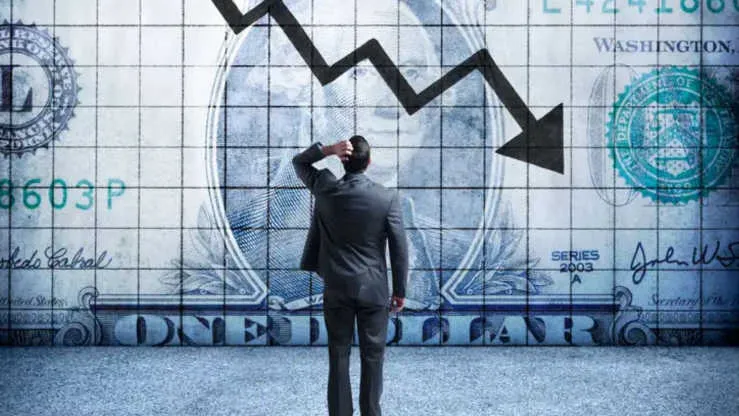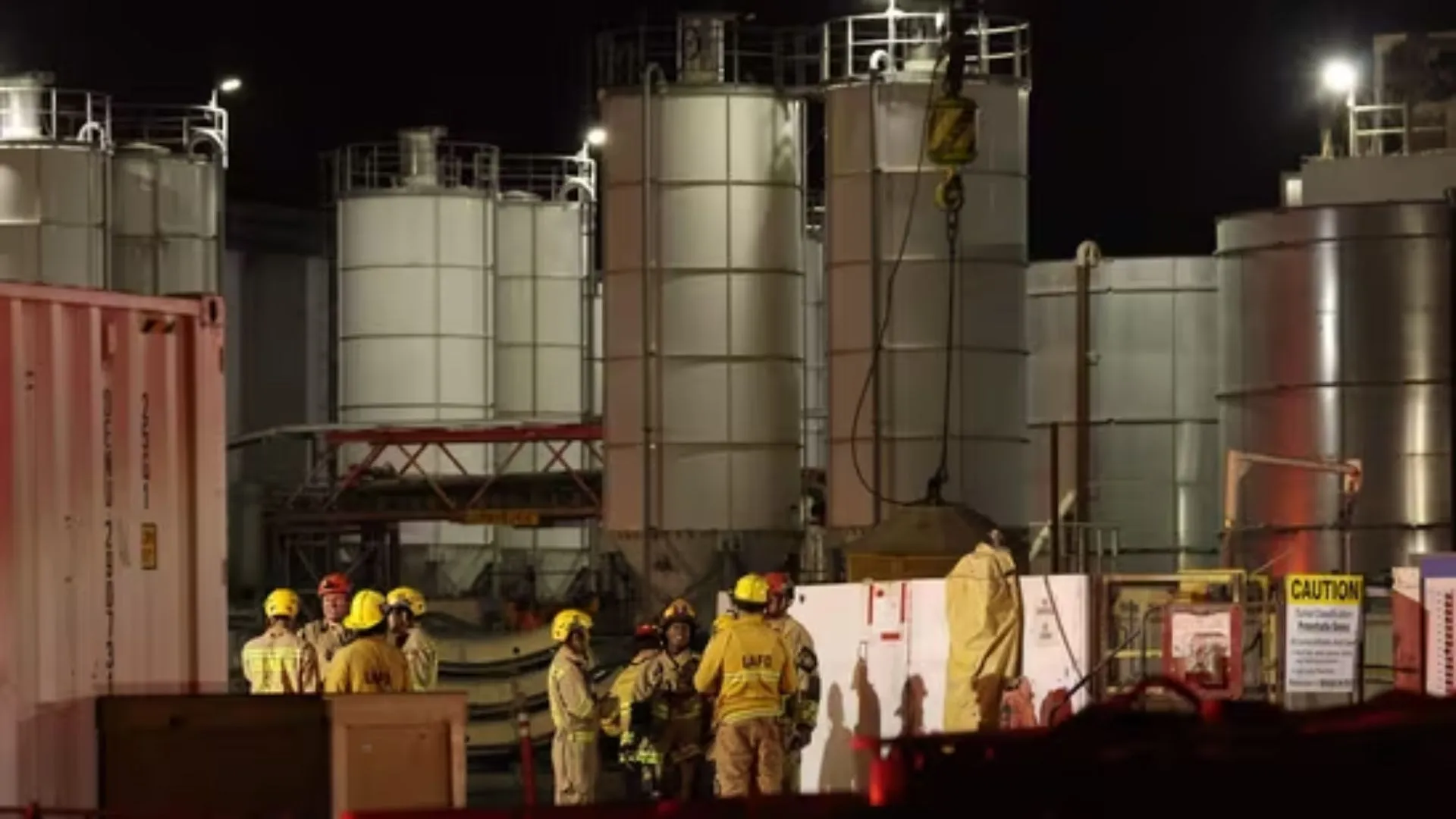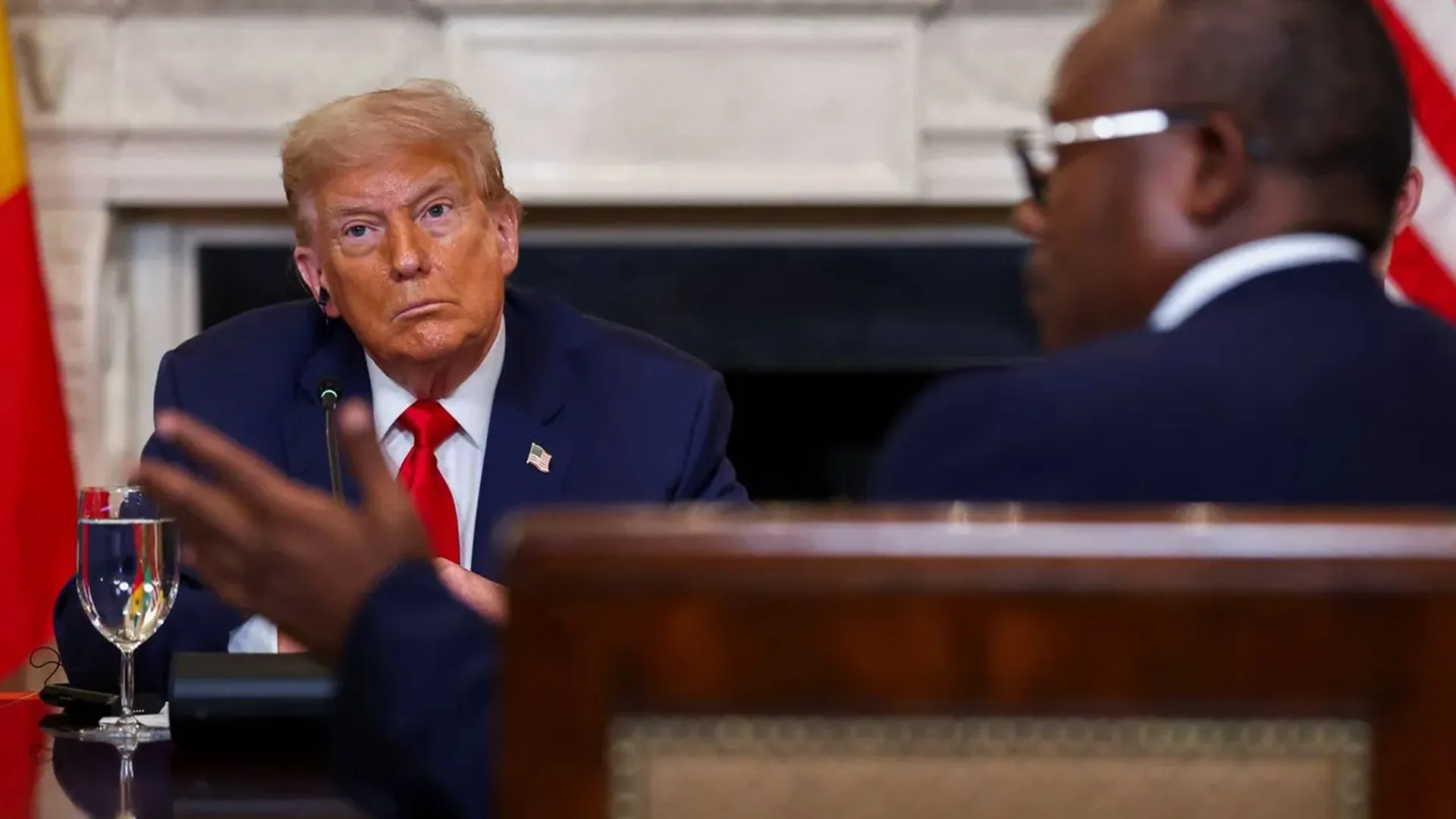The United States stock market suffered a sharp decline on Monday, erasing $4 trillion in market value. Investors reacted to mounting concerns over President Donald Trump’s tariff policies, potential government spending cuts, and workforce reductions.
Major Indices Face Heavy Losses
The S&P 500 dropped 2.7%, bringing its total decline to nearly 9% from its peak last month. At its lowest point, it had fallen 3.6%, making it the worst trading day since 2022.
The Dow Jones Industrial Average also took a massive hit, plunging 890 points or 2.1% after recovering from an earlier 1,100-point drop. Meanwhile, the Nasdaq Composite tumbled 4%, as major tech stocks bore the brunt of the sell-off.
Uncertainty Over Trade Policies Rattles Investors
Market analysts linked the downturn to fears surrounding Trump’s protectionist trade policies. These measures disrupted supply chains, manufacturing, and investor confidence.
Goldman Sachs’ Chief US Economist, David Mericle, revised his economic growth forecast, lowering it from 2.2% to 1.7% for late 2025. He emphasized that tariffs posed a greater threat than initially estimated, according to an AP report.
Tech Stocks Lead the Decline
Technology stocks took the hardest hit. Nvidia, which had skyrocketed over 820% between 2023 and 2024, saw its stock fall 5.1% on Monday, extending its year-to-date losses to more than 20%.
Tesla, led by Elon Musk, suffered an even steeper decline. Its stock dropped 15.4%, pushing its total loss for 2025 to 45%. Analysts believe Tesla’s slump stems from concerns about Musk’s close ties to Trump. What was once seen as a business advantage has now turned into a liability. Protests outside Tesla dealerships and fears about job security have further contributed to the decline.
Other consumer-dependent businesses also struggled. Carnival Corporation, a major cruise-line operator, fell 7.6%, while United Airlines declined 6.3%. The downturn reflects dwindling consumer confidence and mounting economic worries.
Bond Market Reacts to the Chaos
As investors scrambled for safer assets, US Treasury bonds surged in demand. This caused bond prices to rise and yields to fall. The 10-year Treasury yield dropped from 4.32% to 4.22% in a single day—an unusually sharp shift.
Cryptocurrency was not immune to the turmoil. Bitcoin, which had soared to $106,000 in December, plunged below $80,000, signaling a broader shift in investor sentiment.
Global Markets Feel the Ripple Effect
The US market crash sent shockwaves across global financial markets. Asian stocks dropped sharply following Wall Street’s decline:
- Japan’s Nikkei 225 fell 1.7%.
- Australia’s S&P/ASX 200 dipped 0.9%.
- South Korea’s Kospi dropped 1.5%.
- Shanghai Composite (China) lost 0.4%.
- Hong Kong’s Hang Seng declined 0.9%.
India’s stock market opened weak on Tuesday. The Sensex dropped 414.05 points (0.56%) to 73,701.12, slipping below the 74,000 mark. Similarly, the Nifty 50 declined 140.15 points (0.62%) to 22,320.15. Investors fear that Trump’s tariffs could further weaken global trade.
Trump Responds to Market Volatility
When asked about the possibility of a recession in 2025, Trump told Fox News, “I hate to predict things like that. There is a period of transition because what we’re doing is very big. We’re bringing wealth back to America. That’s a big thing.”
His administration has been pushing for aggressive economic policies, including spending cuts, federal workforce reductions, and increased domestic manufacturing. However, these measures have sparked concerns about economic contraction. Real-time data from the Federal Reserve Bank of Atlanta suggests the US economy may already be shrinking.
Goldman Sachs has now raised the probability of a recession within the next year to 20%, citing growing uncertainty over fiscal and trade policies.
Wealth Inequality and Investor Caution
Federal Reserve data highlights the disparity in stock market ownership. The bottom 50% of US households own just 1% of corporate equities and mutual fund shares, while the wealthiest 10% control around 87% of these assets. The widening wealth gap has intensified concerns about financial stability.
Kush Desai, a White House spokesperson, defended Trump’s policies, stating that his economic agenda has resulted in “trillions in investment commitments that will create thousands of jobs.” However, market confidence remains shaky, with investors closely monitoring the administration’s next moves.
Uncertain Road Ahead
As the week progresses, investors are watching whether lawmakers can pass a funding bill to prevent a partial government shutdown. Meanwhile, Wall Street remains highly volatile. If policy uncertainty continues, further declines in the stock market could follow.
Monday’s staggering sell-off, wiping out $4 trillion in value, has cast a shadow over the economy and intensified fears of an impending recession.






















